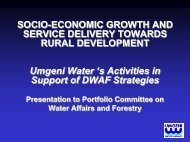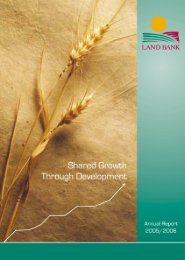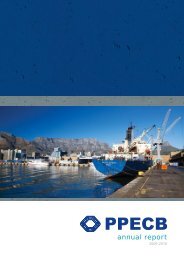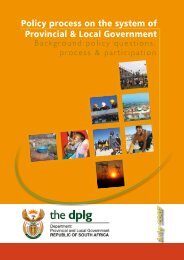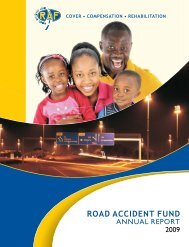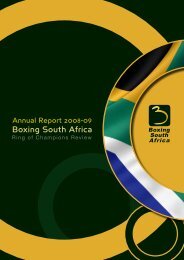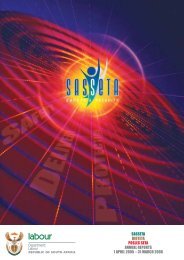Academy of Science South Africa 2005/6 Annual Report
Academy of Science South Africa 2005/6 Annual Report
Academy of Science South Africa 2005/6 Annual Report
- No tags were found...
You also want an ePaper? Increase the reach of your titles
YUMPU automatically turns print PDFs into web optimized ePapers that Google loves.
ASSAf Programme 2Quest – <strong>Science</strong> for <strong>South</strong> <strong>Africa</strong> will be a science magazine with national impact in thedomains <strong>of</strong> school education, public understanding <strong>of</strong> science, and science literacy.publication <strong>of</strong> the <strong>South</strong> <strong>Africa</strong>n Journal <strong>of</strong> <strong>Science</strong>, the <strong>Academy</strong> made a number <strong>of</strong> special awards, one toDr Baker for his thirty years <strong>of</strong> outstanding work as editor, one to Pr<strong>of</strong> Johann Lutjeharms as the singlemost prolific author <strong>of</strong> articles over the last two decades, and one to Pr<strong>of</strong> Phillip Tobias (MASSAf) forexceptional services to the journal during his career.In a recent bibliometric analysis, the <strong>South</strong> <strong>Africa</strong>n Journal <strong>of</strong> <strong>Science</strong>, which is one <strong>of</strong> about twentyresearch journals published in <strong>South</strong> <strong>Africa</strong> indexed in the authoritative international Thomson ScientificISI system, achieved the highest impact factor among multidisciplinary journals from developingcountries, and was the only <strong>South</strong> <strong>Africa</strong>-based journal ranked in the second quintile among itsinternational counterparts (see Pouris A. S.Afr. J. Sci. 100, 515–517; 2004).The number <strong>of</strong> articles submitted to the journal increased by 60% in the last three years, andcontinues to grow steadily. In order to ensure that articles by the country’s young scholars are alsopublished, the editor and associate editor take considerable trouble to mentor and support researcherswho are inexperienced at presenting their work for publication in international-level journals.Dr Elizabeth LickendorfEditor <strong>of</strong> Quest: <strong>Science</strong> for <strong>South</strong> <strong>Africa</strong>Published by ASSAfPublishing QuestA quarterly magazine <strong>of</strong> high quality, presenting science for <strong>South</strong> <strong>Africa</strong>The <strong>Academy</strong> continued the publication <strong>of</strong> its science magazine Quest – <strong>Science</strong> for <strong>South</strong> <strong>Africa</strong> thatwas launched in 2004. Quest serves as a platform for communication about actual scientific research in<strong>South</strong> <strong>Africa</strong>. It strives to showcase <strong>South</strong> <strong>Africa</strong>n science in action, and is aimed at the broad scientificcommunity, decision-makers, the public and students, and at inspiring the senior grades at secondaryschools.In the public sector programme, a sponsored copy is sent to every secondary school in <strong>South</strong> <strong>Africa</strong>teaching science and mathematics. Feedback from these schools is very encouraging. Arrangementsare in place for Quest to be used extensively and cooperatively in those projects and initiatives <strong>of</strong> theDepartments <strong>of</strong> Education and <strong>of</strong> <strong>Science</strong> and Technology, as well as <strong>of</strong> the <strong>South</strong> <strong>Africa</strong>n Agency for the26 Promoting Excellence in <strong>Science</strong> for Society


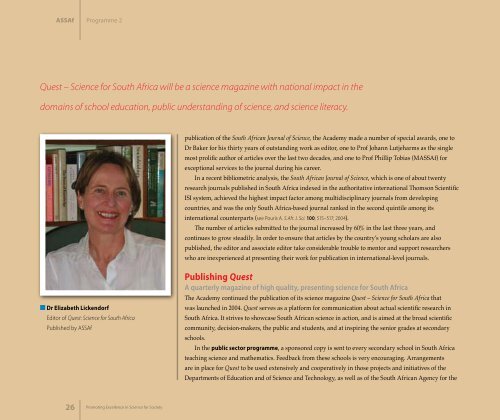
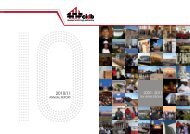
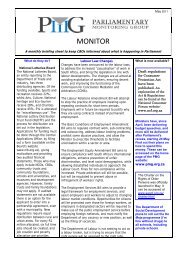
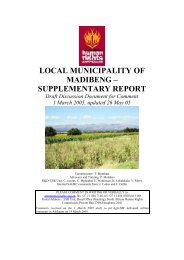
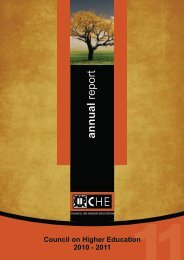
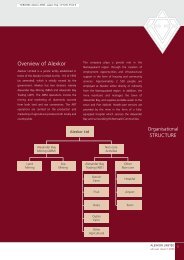
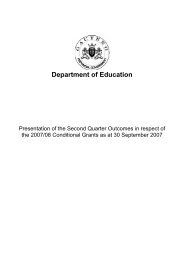
![National Research Foundation Annual Report 2008 / 2009 [Part 2]](https://img.yumpu.com/49774036/1/177x260/national-research-foundation-annual-report-2008-2009-part-2.jpg?quality=85)
